The water was warm last summer. Dixon Entrance to Sitka, Southeast Alaska felt eerily barren – no bait, no birds. All July & August, the coho were skittish, unwilling to school up or settle into traditionally favored spots. With no hot bites to run to, some boats tied up mid-season, unable to justify the cost of fuel for the fish they weren’t catching. Newer fleetmates looked stunned, confessing they hadn’t even broken 300 yet. They’d come in on the good years, thinking those days were normal. As for Joel & me, Team Nerka finally had to practice patience. Notorious runners, always searching for something better – one of our elders once said about Joel, “That boy’s jumpier than a fart in a skillet” – instead we stuck & stayed & tried to make it pay, grinding out days for meager two-digit scores we would’ve abandoned by mid-morning on previous years. When friends asked us how the season was going, we told them the word for the summer was “underwhelming.”
Underwhelming. Spoken in true fisherman fashion: understated, minimizing reality. Like shrugging “We did all right,” when you come back to town with the hold plugged & the waterline sunk. Like green water washing over the windows, coffee cup swan-diving to shards on the floor, your partner in the anchorage asking for a weather report: “It’s nautical.” Like the calm observation, the water was warm, instead of screaming WTF, what’s happening, how did we get here?
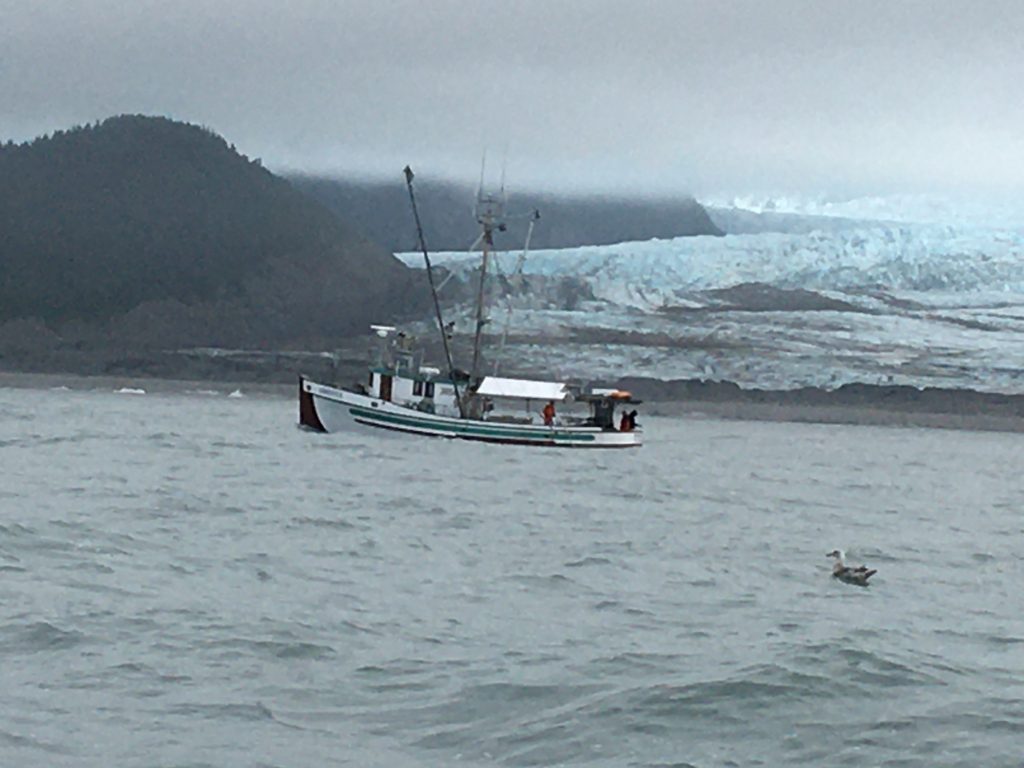
How did I get here?
Anchorage, 1985. A faded 3x5 captures the moment. A 43’ foot trimaran hovers in the center of the shot, suspended by a crane. My parents, veterinarians in the Mat-Su Valley, have spent the past seven years building the Askari in our landlocked backyard. Seven years toiling in the vet clinic every day, laboring deep into every night to create this moment, the long-awaited launch. My dad strains at the bow, gripping a guideline. My mom dashes to steady the stern. I am a child supervisor, hands stuffed in pockets, standing on a precipice with the Askari, life cleaving into hemispheres of before & after, suspended between land & sea.
That was 35 years ago. I’m 42 now, the same age my mom was when she traded her veterinary license for a troll permit. Imagine – the courage to turn away from your education, the business you’d built, your home, from land itself; sell it all, go all in. Crafting an alternate reality out of fiberglass, resin, dreams.
Imagine… believing in a dream envisioned, believing in it so profoundly, as to sacrifice everything without any guarantees. To sacrifice, suffer even, for the sheer possibility of change.
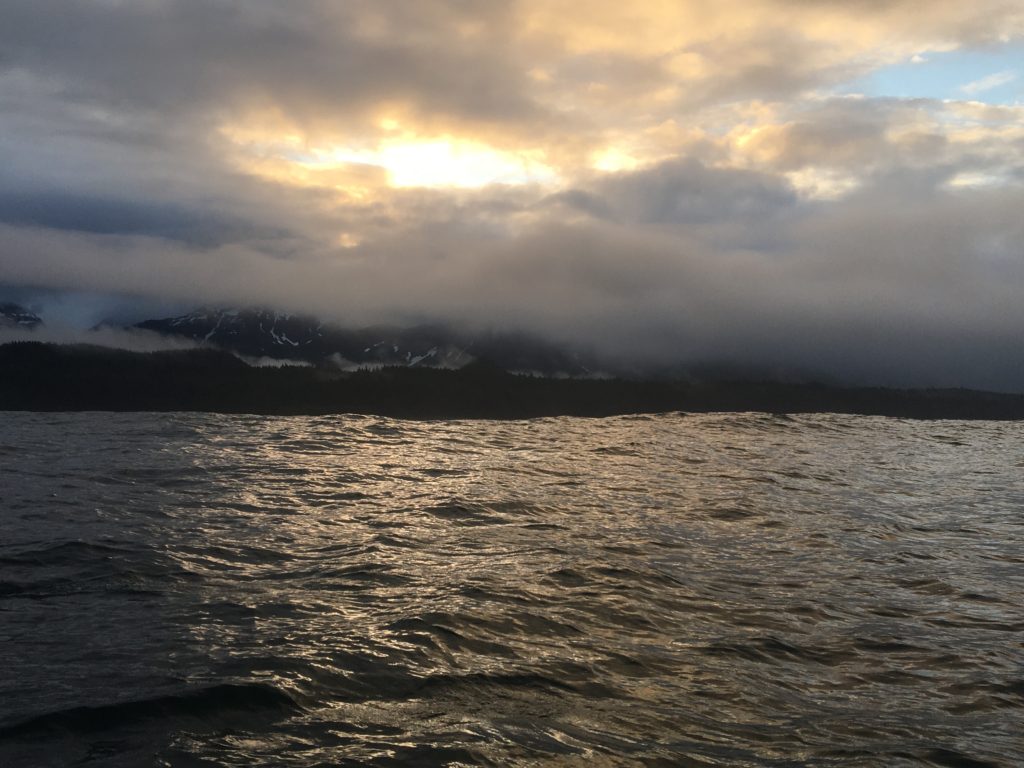
In December 2019, the news broke that the Gulf of Alaska’s cod fishery would be closed for the 2020 season. It was the first fishery to be closed not because of overfishing, but as a consequence of warming waters.
A few weeks later, Alaska Fish & Game released their projection for Sitka’s sac roe herring fishery, a harvest target of 25,000 tons, up from last year’s 13,000. They didn’t catch the quota last year, or the year before that. Just finally gave up, charging west to try other regions, other fisheries, leaving disgusted sighs of exhaust in their wake.
I think about herring – a keystone species, their wellbeing essential to the survival of everyone above them on the food chain, including king salmon – & I think about money, & how fisherfolks are in the VIP seats, front & center as change washes over us, & you know those boats charging west in search of other regions, other fisheries, their engines sound an awful lot like the band on the Titanic playing on, playing on, & in my mind they’re playing with Tracy Chapman & she’s singing If you knew that you would die today – would you change?
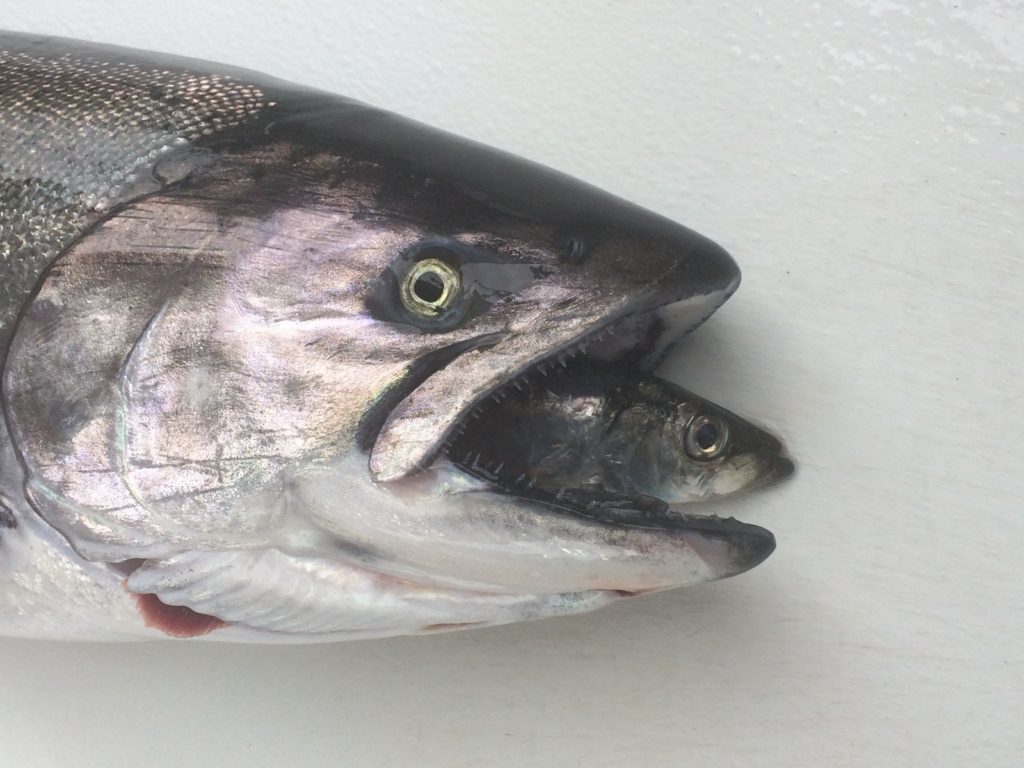
After the fishing season, I spend winters selling the Nerka’s catch. For many of my fleetmates, this is the goal: get your boot in the door with an ice boat, work up to a freezer boat, cut out the middlemen & sell your catch yourself. I answer their questions, watch them ascend the industry escalator, watch their determination to make it as they sacrifice, suffer even, for their dream of making a good life catching fewer fish at a greater value.
Meanwhile, over the past five years of slinging salmon to chefs in the surrounding counties, I’ve driven the equivalent of crossing the country ten times, often to a soundtrack of NPR, listening to the latest on a melting Arctic & a blazing Australia, thinking about change – climate change, social change, spare change, this show sucks change the channel, burn it all down & start over systemic change. The ways we’re socialized to believe we’re supposed to change – moving on up, up, & away, striving for faster, better, more.
Me, I want to sloooooooow down. The more I want is smaller, simpler. More quiet, more peace, a care-filled, purposeful present, more acts of kindness & compassion for you and for me, too. This planet is spinning too, too fast & I want off, but how do you stop when your foot is one of billions stuck on the gas pedal? Global change? I might as well be welded to this Chevy Astro, I’m such a part of the machine.
Last September, toward the end of the fishing season, I sat with a fleetmate. His birthday falls in August, smack-dab in what’s historically our second king opening. This year, for the first time, he tied the boat up & skipped the opening – a king opening! – to welcome his 72nd rafting the Alsek River with loved ones instead.
“I never could’ve imagined doing that,” he said. His voice was equal parts awe & gratitude for his decision, & I wondered what it would be like if we all had the security & freedom to make such audacious, life-giving choices, to measure the value of pounds to dollars to your time’s worth, your life’s worth. Who among us can afford to do this?
Who can afford not to?
The water was warm last summer. No one denies that. Instead we argue differing takeaways. Some mock a teenage girl’s urgent call to action – so direct & fierce, sacrilege to fishing’s code of understatement. Others travel to DC to lobby to protect the Tongass, the world’s largest remaining temperate rainforest. Searching for the magic words to urge people to care, to act, we resort to the language of money. What’s it to you?
I do it, too. For every salmon I thank as I slice their gills – thank you, thank you – life runs out the scuppers & by the end of the season I’m running numbers same as anyone else: how many fish at how many pounds at how many dollars to fill how many orders. This is all part of a sea-to-plate story, & I’ve been living versions of it since I was that little girl landing in Sitka, jigging off the dock in Old Thomsen Harbor with fellow boat kids, filling five-gallon buckets with baby black cod. At the end of the day we sold them to my friends’ dad for halibut bait. He paid us in ice cream cones from the Dip-n-Sip.
Thirty-five years living this life with critical yet marrow-deep devotion. Devotion like being lashed to the mast of a ship cradling you & me & all living things, thrashed by a perfect storm of capitalism, complicity, hypocrisy. As the wind catches its breath, we soothe each other with stories. Stories like when I crewed for my brother for a king opening & watched him pull a thirty-pounder boat-side. Thick-bellied, not a shimmering scale missing, perfect & perfectly hooked through the tip of her snub nose. He slipped his gaff gently through & popped the hook free, telling her, “Go find a river.”
That’s what keeps me on this ship, you know – faith that there might be some meaning in these moments when we do the unexpected, do the hard thing, when we go off-script & show what we truly value. When the storm continues but we’re not passive. When we reach for the tools before us – science, history, culture, art, community, love – and we make a change.
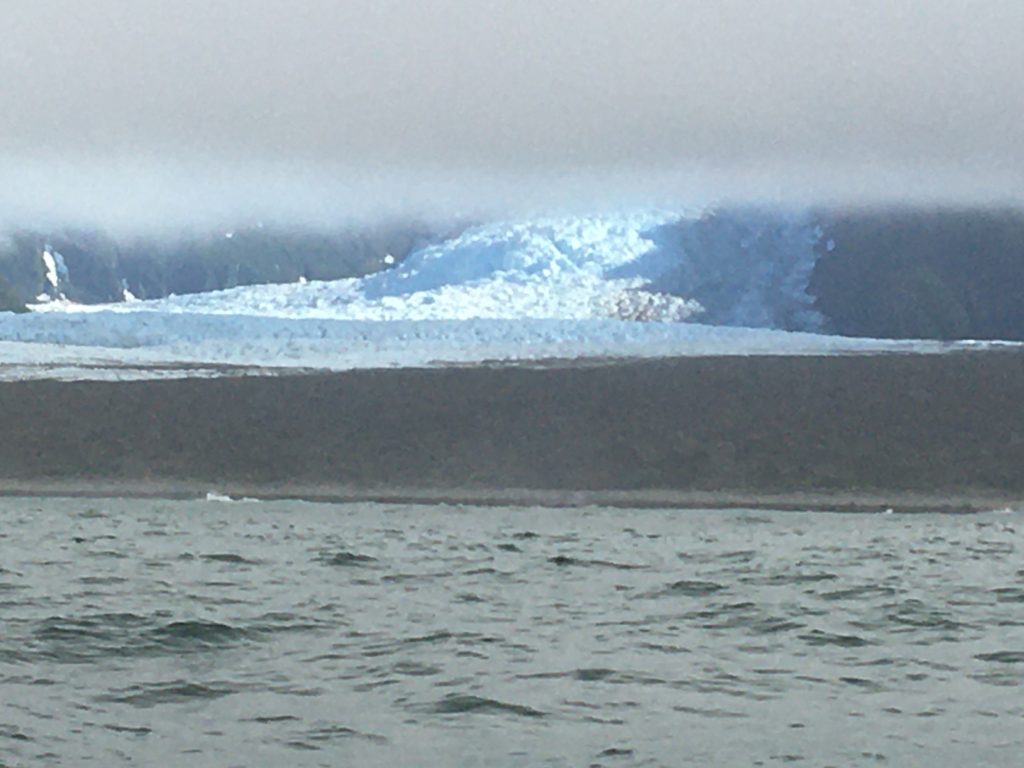

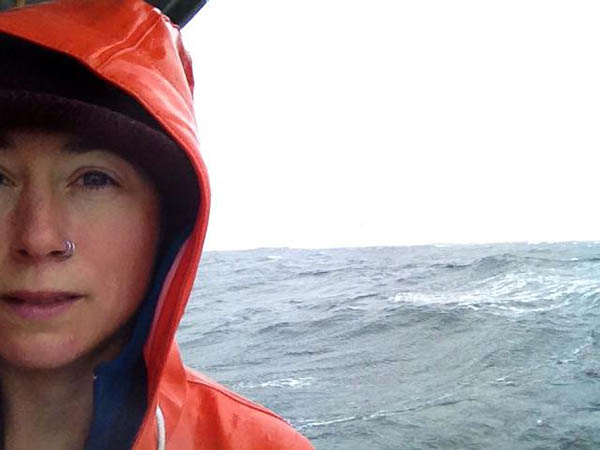
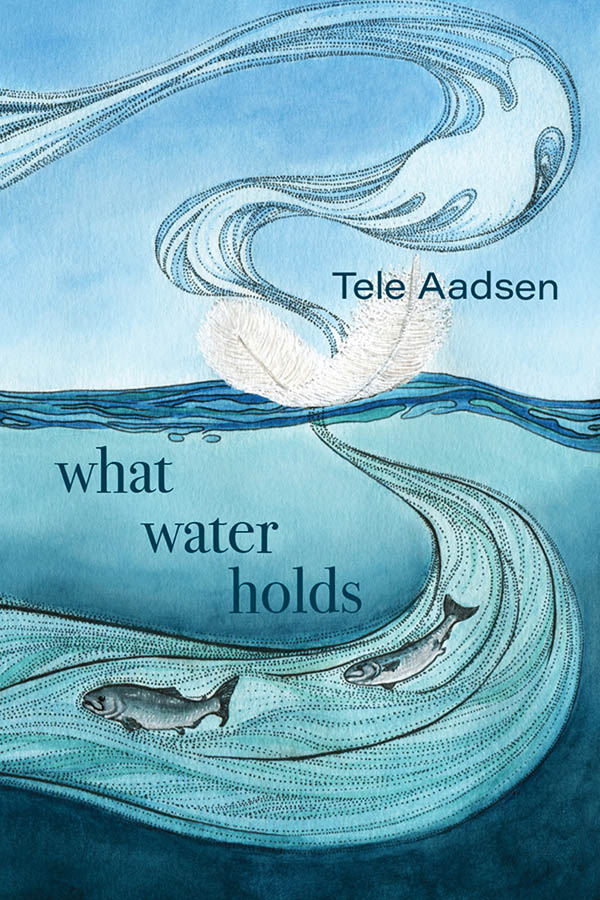
oH tELE!, YOU ARE SUCH A GREAT WRITER.
Words I needed to read. Thank you, Tele. Wishing you well.
Whew. You take my breath away. Thank you.
Wonderful, Tele.
Thanks for this piece, Tele. It’s humbling to hear what’s happening in SE, and to think of the various reactions in Bristol Bay to a low price on a good fish year. It’s starting to feel lonely up there, yet the bigger changes are coming fast.
Lovely!
Thanks again for the peek into your beautiful soul, Tele. I’m always humbled by your writing, and encouraged you are out there, being a beacon of hope. Love you!
I remember that kid on the Askari. Something, too, about jam. Received as a gift. For an August birthday during a closure. In Thompson Harbor. A snapshot in time. Fast forward. Saint Jude will have Sitka on her stern. Her name will stay the same. Her new owner — is a fleet elder. He knows the old stories. Change . Letting go well sometimes means being okay with integrating that which has sustained us. That is where the peace resides. Rivers.
Thank you for sharing your first hand, heart driven insights with us, Tele! Your writing here reflects our collective sorrow for the drastic reduction in wild places and animals due to global temperatures and human greed. Accepting that warming may continue with or without us is difficult, yet we are fortunate to experience this rare gift of life, as imperfect and unbridled as it may be.
What you do with language is astonishing. It reveals the gold that is your heart. Aunt Lynn
Tele, your mom mentioned this particular post with exceptional pride. No wonder!
Your voice is magnificent. Falling under the spell of perfectly-painted word pictures, I feel the opposite of “underwhelmed” and, in fact, long for the book that someday will follow.
Through your gripping – often brilliantly-sentimental – narrative, I’m able easily to grasp overlapping reasons for current discouragement. Nonetheless, I beg of you:
Tele! Keep on keeping on, Tele! For a growing fan base, your talent and experiences are far too valuable (and valued) for interruptions.
Yes to everything you said and very well said. And your cod are up here off Nome. Saved the grounded crab fleet here. From $7/lb to ‚75 ct/lb – oof, but glad to have them. As for me, I love subsistence coho fishing – never dream of making a penny, just fish and eat.I tried to send you something longer up above but didn’t connect. You might like my latest books-if you haven’t seen, both about fishing of course, not only salmon.-see my website. below.